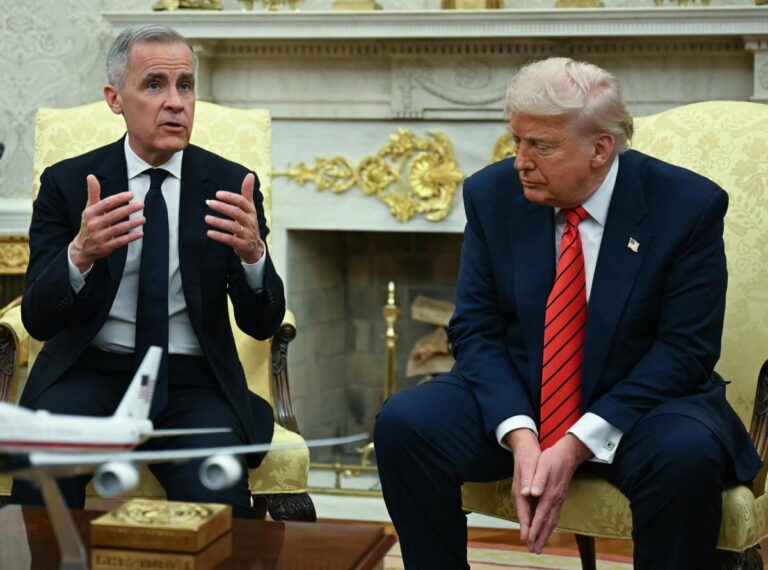Canada’s recent implementation of counter-tariffs has sparked significant diplomatic tensions, with the United States envoy claiming these measures have “pulled the rug out from” the Canada-United States-Mexico Agreement (CUSMA). As trade relations between the neighboring countries face renewed strain, industry leaders and policymakers are closely monitoring the fallout and potential ramifications for North American economic cooperation. This development marks a critical juncture in the ongoing negotiation over tariffs and trade policies under the trilateral agreement designed to strengthen cross-border commerce.
Canada’s Counter-Tariffs Challenge the Spirit of CUSMA Trade Agreement
Canada’s recent implementation of counter-tariffs amid ongoing trade disputes has sparked significant criticism from U.S. officials, who argue these measures undermine the cooperative framework established under the Canada-United States-Mexico Agreement (CUSMA). A senior U.S. envoy described the counter-tariffs as having “pulled the rug out” from the spirit of mutual commitment that was intended to facilitate seamless trade and economic cooperation across North America. This development not only threatens the carefully balanced tariff agreements but also raises concerns about escalating trade tensions that could affect various sectors ranging from automotive manufacturing to agriculture.
The U.S. response highlights several key issues stemming from Canada’s approach:
- Disruption of supply chains: Increased tariffs risk delays and higher costs for cross-border manufacturers.
- Impact on businesses: Export-driven companies face uncertainty that may affect investment and employment.
- Diplomatic tensions: Strained relations could complicate future negotiations on trade and regulatory alignment.
| Sector | Potential Impact |
|---|---|
| Automotive | Supply chain delays, increased costs |
| Agriculture | Export restrictions, market uncertainty |
| Manufacturing | Higher tariffs, reduced competitiveness |
US Envoy Calls for Diplomatic Engagement to Resolve Tariff Disputes
U.S. Trade Representative emphasized the urgent need for renewed diplomatic dialogue after Canada implemented counter-tariffs, which he argued undermined the spirit of the Canada-United States-Mexico Agreement (CUSMA). According to the envoy, these measures not only disrupted cross-border trade flows but also strained the longstanding economic partnership between the two countries. He highlighted that despite ongoing tensions, dialogue remains the most viable path to recalibrate trade relations and avoid further escalation.
Key points conveyed by the envoy urge both nations to:
- Recommit to collaborative negotiations aimed at tariff reduction
- Utilize existing dispute resolution mechanisms under CUSMA
- Prioritize open communication channels to prevent future disruptions
| Issue | U.S. Position | Canadian Response |
|---|---|---|
| Steel and Aluminum Tariffs | View as protectionist and harmful to CUSMA | Framed as necessary countermeasure |
| Trade Flow Stability | Calls for immediate restoration | Seeks balanced approach through tariffs |
| Dispute Resolution | Encourages use of CUSMA panels | Open to negotiations within agreements |
Experts Recommend Enhanced Bilateral Mechanisms to Prevent Future Trade Conflicts
Trade analysts and policymakers are urging the adoption of stronger, more transparent bilateral frameworks to avoid the recurrence of disputes like the recent counter-tariffs imposed by Canada. Experts argue that these enhanced mechanisms would serve as critical platforms for early dialogue, allowing member countries to address grievances before escalating into damaging trade conflicts. By promoting ongoing communication and compliance monitoring, nations can better safeguard the integrity of agreements such as CUSMA, mitigating risks that undermine economic partnerships.
Key recommendations from specialists include:
- Regular joint review sessions to assess tariff policies and trade barriers;
- Creation of a rapid-response task force to resolve disputes swiftly and prevent retaliatory measures;
- Enhanced data sharing protocols for greater transparency and trust between trading partners;
- Implementation of binding arbitration clauses to ensure compliance and dispute resolution adherence.
| Proposed Action | Impact | Estimated Timeline |
|---|---|---|
| Joint Review Sessions | Improved transparency | Quarterly |
| Rapid-Response Task Force | Faster dispute resolution | Within 30 days |
| Data Sharing Protocols | Increased trust | Ongoing |
| Binding Arbitration | Enforced compliance | As needed |
In Conclusion
As Canada’s counter-tariffs continue to provoke friction in the North American trade landscape, the tensions underscore the fragile nature of the USMCA agreement. With officials on both sides navigating a complex web of economic and political pressures, the path forward remains uncertain. Stakeholders will be closely monitoring developments as Ottawa and Washington seek to restore stability to a partnership that is vital to the region’s economic health.




